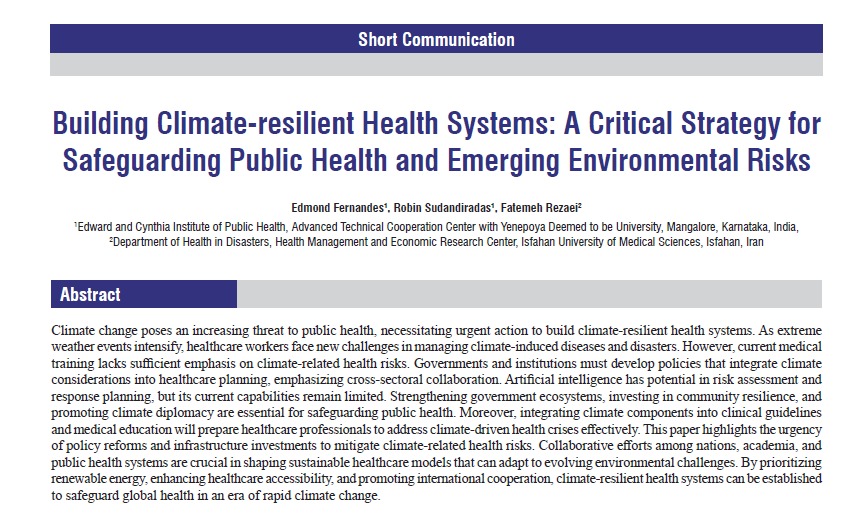
Climate change poses an increasing threat to public health, necessitating urgent action to build climate-resilient health systems. As extreme weather events intensify, healthcare workers face new challenges in managing climate-induced diseases and disasters. However, current medical training lacks sufficient emphasis on climate-related health risks. Governments and institutions must develop policies that integrate climate considerations into healthcare planning, emphasizing cross-sectoral collaboration. Artificial intelligence has potential in risk assessment and response planning, but its current capabilities remain limited. Strengthening government ecosystems, investing in community resilience, and promoting climate diplomacy are essential for safeguarding public health. Moreover, integrating climate components into clinical guidelines and medical education will prepare healthcare professionals to address climate-driven health crises effectively.
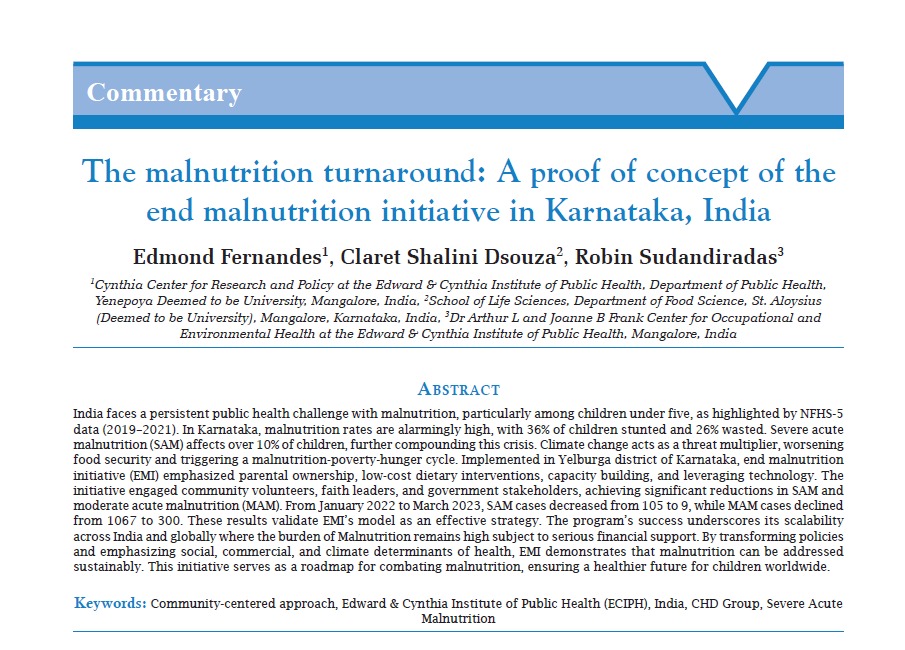
India faces a persistent public health challenge with malnutrition, particularly among children under five, as highlighted by NFHS-5 data (2019–2021). In Karnataka, malnutrition rates are alarmingly high, with 36% of children stunted and 26% wasted. Severe acute malnutrition (SAM) affects over 10% of children, further compounding this crisis. Climate change acts as a threat multiplier, worsening food security and triggering a malnutrition-poverty-hunger cycle. Implemented in Yelburga district of Karnataka, end malnutrition initiative (EMI) emphasized parental ownership, low-cost dietary interventions, capacity building, and leveraging technology. The initiative engaged community volunteers, faith leaders, and government stakeholders, achieving significant reductions in SAM and moderate acute malnutrition (MAM).
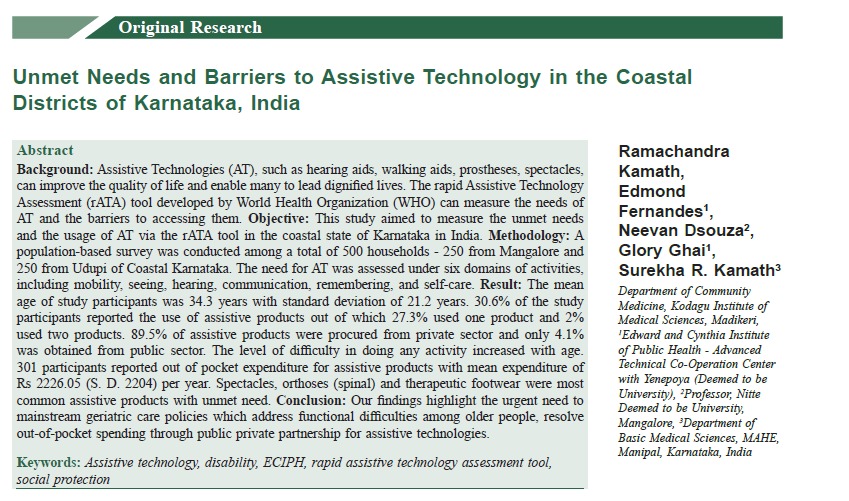
The rapid assistive technology assessment (rATA) tool was designed by the World Health Organization (WHO) in 2014 to map the need, demand, supply, and user satisfaction with assistive technology (AT) that could serve to inform and shape new policies that support social inclusion and social protection.[1,2] AT is defined by the WHO as “the application of organized knowledge and skills related to assistive products (APs), including systems and services” (WHO, 2018).[3] It is estimated that over two billion people will need at least one assistive product by 2030 and possibly older people needing more.

Kidney diseases today have posed a significant challenge for global health and thus bridging the gulf of nephrology in community development calls for greater scientific diplomacy. Investing in treatment of Chronic Kidney Disease (CKD) is among the most pressing concerns of the 21st century notwithstanding other kidney diseases. Convincing evidence suggests that CKD can be picked up by simple laboratory tests, complications can be deferred, the progression of the disease can be slowed and other risk factors avoided. Effective governance by health ministries around the world must translate these technological advances into shaping nephrology care at a community level by strengthening health systems at primary and secondary level of care.
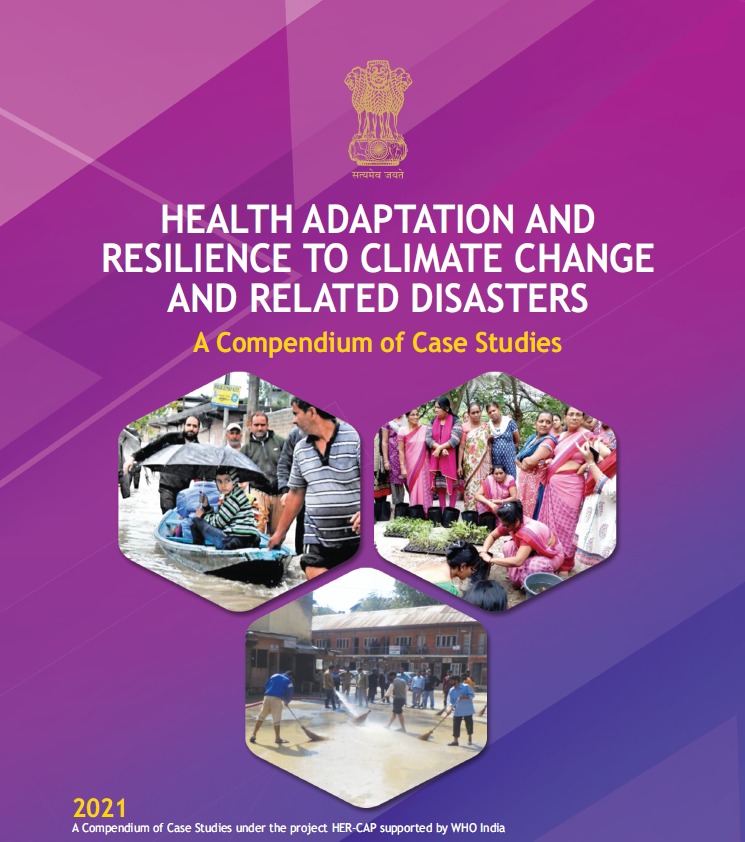
Uttarakhand state has a composition of metamorphic rocks and tectonically active making the state vulnerable to repeated disasters and climatic risk. Socio-economic, geopolitical, environmental and ecological make up of the state makes it highly vulnerable to natural disasters, cloudburst being one among them. The average annual rainfall in Uttarakhand is about 1229 mm with the state having cold weather with snow for many months, besides receiving moderately high rainfall and mild summers given the terrain.
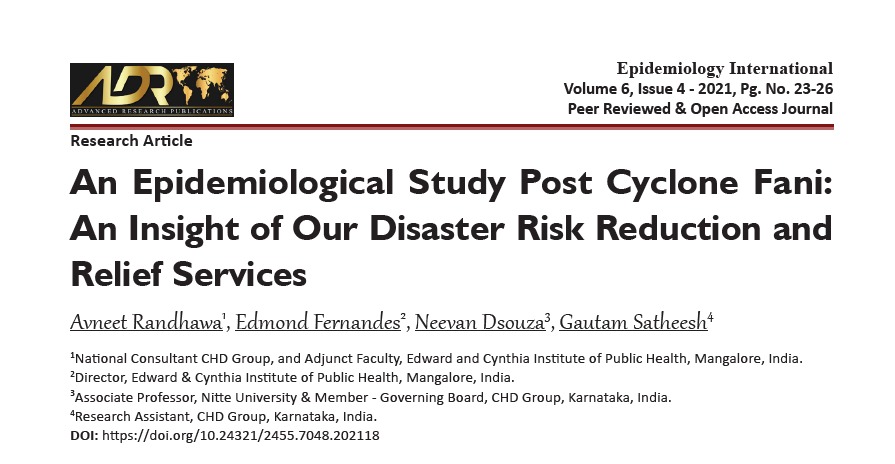
Every year cyclones hit India, impacting the population living along the coastline, the infrastructure, and inland areas within India. Multiple bodies of evidence suggest that cyclonic storms disrupt regular health systems depending on the category of the storm. The cascading risks emerging from such disasters present a more complex risk scenario for sustainable development.
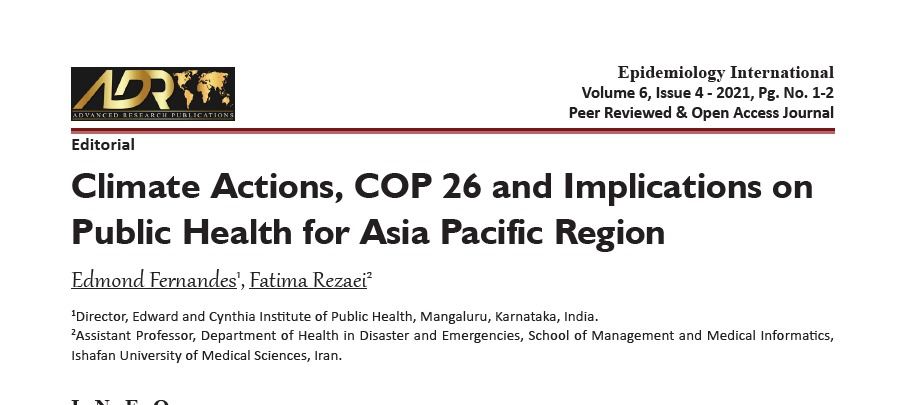
From the Paris agreement on climate change to COP 26, the world is increasingly having conversations that suggest urgent action for change. The nexus between climate change, extreme weather events and public health consequences is indisputable and implications for the Asia Pacific Region is extremely grave with hard-won development gains soon fading away. COP 26 serves as a disappointment to many, but it must be learnt that actions occur on the ground, with national governments, not at a round-table.